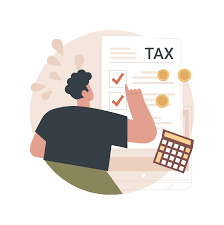 Bookkeeping for Physiotherapists
Bookkeeping for Physiotherapists
Physiotherapists, like any other professionals, must pay attention to several tax-related considerations when maintaining their bookkeeping for physiotherapists. These considerations are essential for accurate financial reporting and compliance with tax regulations. Here are some key points they should address:
1. Income Tracking:
Physiotherapists need to diligently record all sources of income, whether it’s from patient consultations, workshops, or other services. Properly categorizing income helps in accurately assessing the total earnings and reporting them correctly on tax returns.
2. Expense Documentation:
Keeping detailed records of business-related expenses is crucial. This includes expenses related to equipment, rent for clinic space, professional memberships, marketing, and more. Properly documented expenses can be deducted from the gross income, reducing the taxable amount.
3. Separate Business and Personal Finances:
Maintaining a separate bank accounts and credit cards for business and personal use is essential. This separation streamlines tracking business transactions, making it easier to identify deductible expenses and assess the financial health of the practice.
4. Accurate Recordkeeping:
Precise recordkeeping is a must. Physiotherapists should retain invoices, receipts, and other financial documents for a specified period (as per local regulations) to substantiate their income and expenses during tax audits or reviews.
5. Tax Deductions:
Physiotherapists should be aware of tax deductions that apply specifically to their profession. This might include deductions for medical supplies, continuing education courses, professional development, and travel expenses related to work.
For more information to visit: https://www.mca.gov.in/
6. Goods and Services Tax (GST):
Depending on the jurisdiction, physiotherapists may need to register for and collect GST or VAT on their services. Properly tracking and remitting these taxes is crucial to avoid penalties.
7. Depreciation of Assets:
Physiotherapists often invest in costly equipment. They should understand how to depreciate these assets over time, which allows them to claim deductions for the wear and tear of these assets.
8. Employee and Contractor Payments:
If physiotherapists hire employees or engage contractors, they need to ensure proper tax withholding and reporting. Compliance with payroll tax regulations is vital to avoid legal issues.
9. Estimated Tax Payments:
Depending on income levels, physiotherapists might need to make estimated tax payments throughout the year. This helps in avoiding a large tax bill at the end of the year and potential penalties.
10 Engage a Professional:
Given the complexity of tax regulations, many physiotherapists opt to work with an accountant or tax professional who specializes in healthcare or small business taxation. This can help ensure accurate reporting and maximize tax benefits.
For further details access our website: https://vibrantfinserv.com
